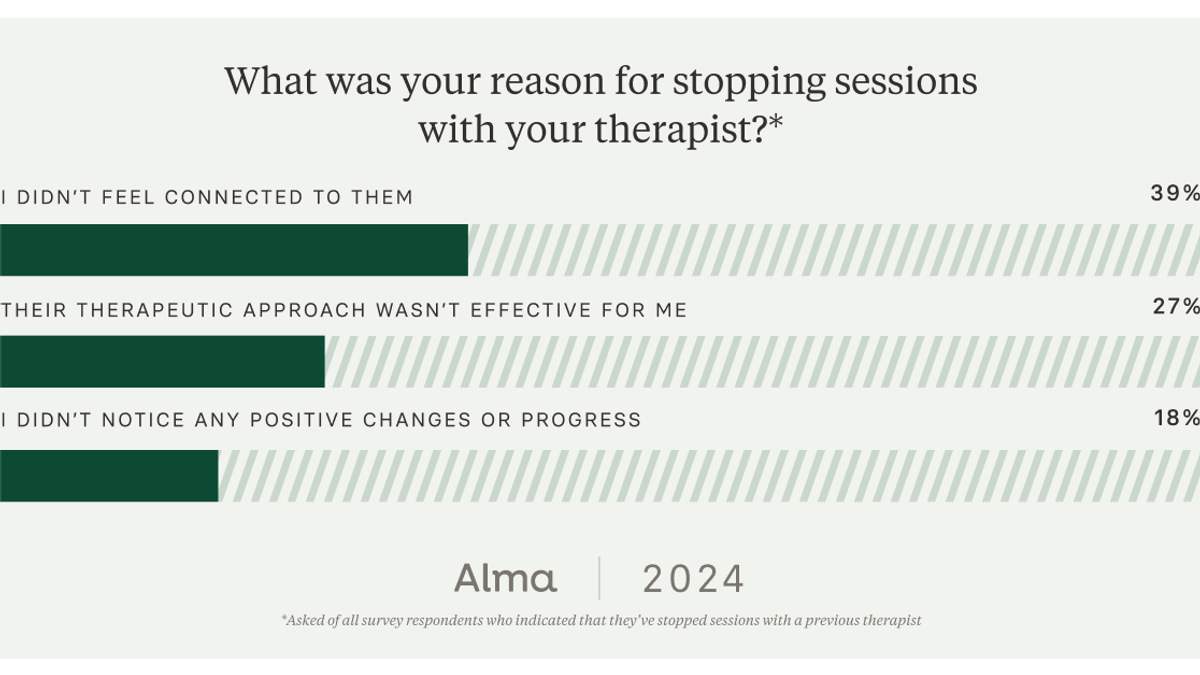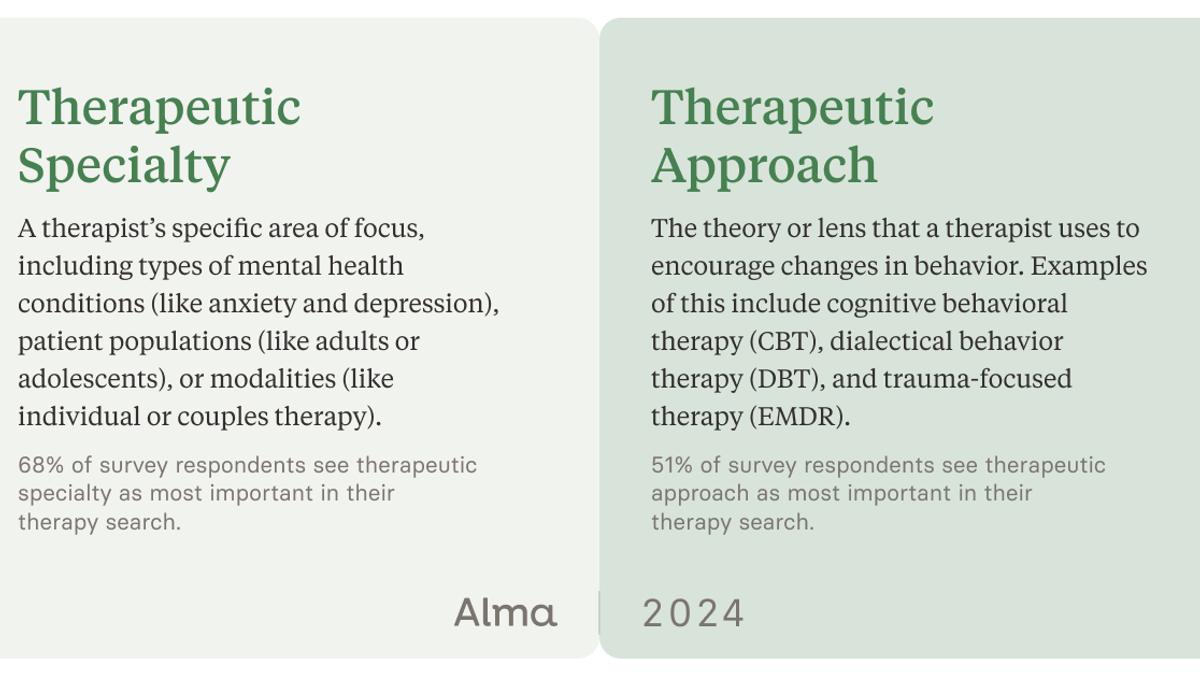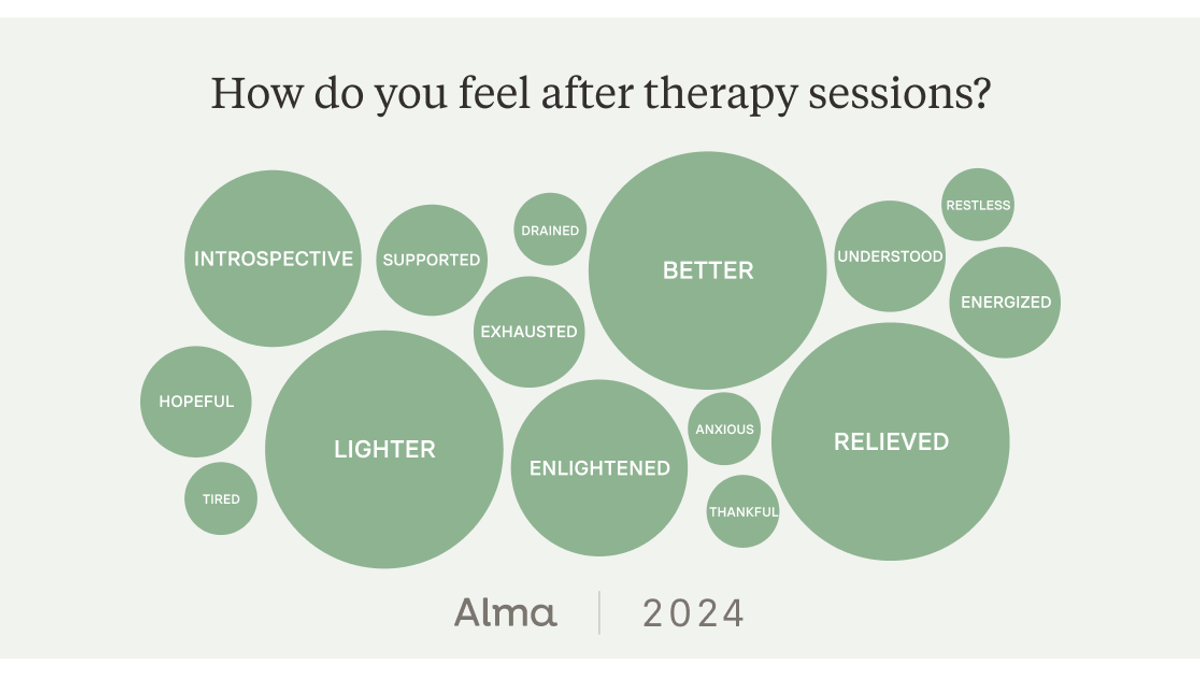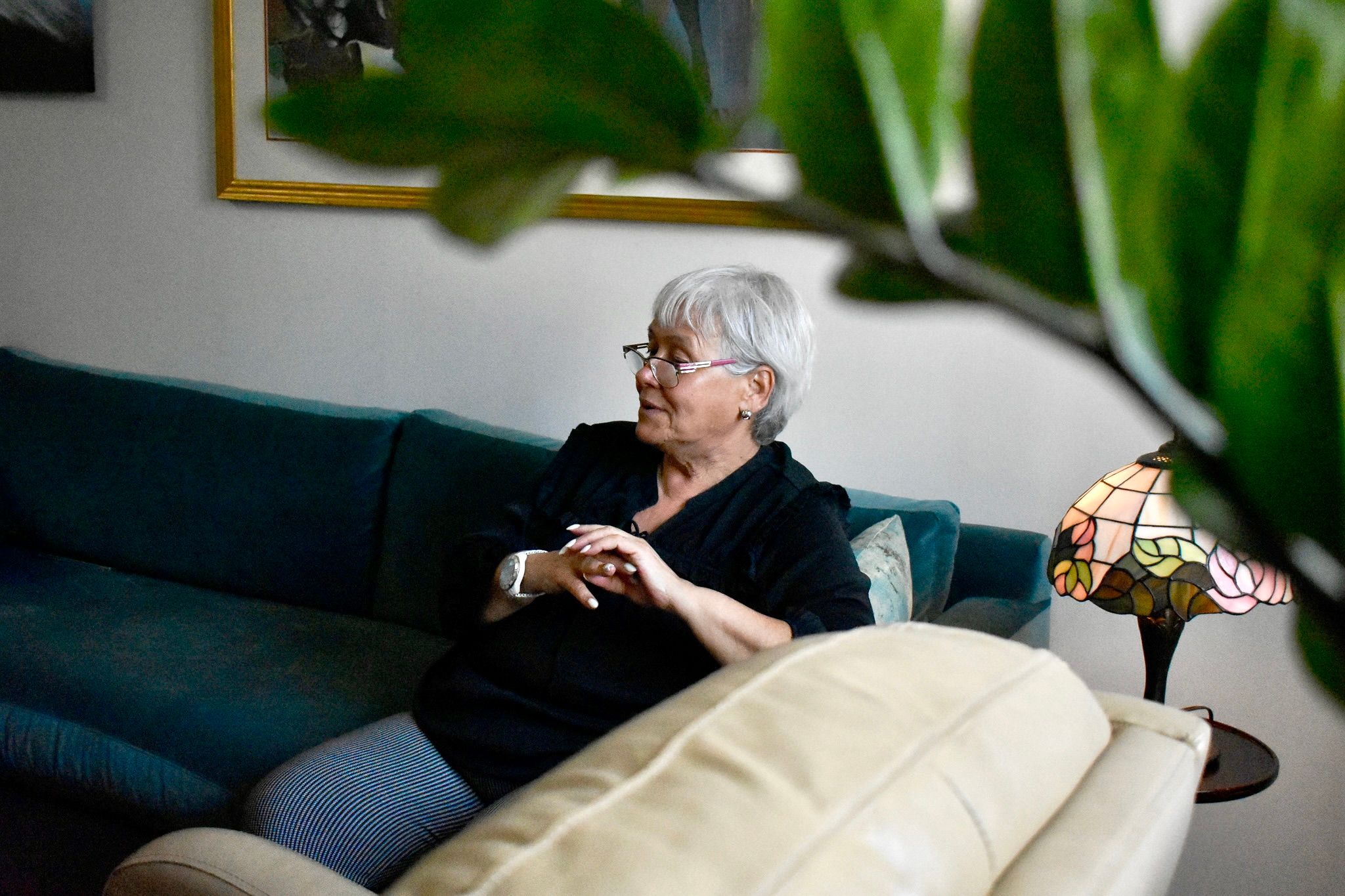Mental health care has persisted despite decades of criticism and stigma. That’s because, on the whole, therapy works.
And despite mountains of evidence painting a clear picture of therapy’s efficacy, skepticism remains. Searches for “does therapy work” doubled over the past five years. And, bafflingly, media outlets like The Cut continue to stigmatize mental health care, even encouraging readers to quit therapy altogether.
The whole truth is that, sometimes, therapy doesn’t work.
Most skepticism is fueled by a lack of understanding, or by folks who have bad or ineffective therapy experiences.
There’s no one explanation for why a therapeutic relationship might be ineffective, just like there’s no one-size-fits-all approach to mental health care.
But, a recent survey from Alma of nearly 7,000 therapy-goers highlighted some of the common reasons why therapy might not, offering insights for how to find care that fits.
The problem
Alma’s survey aimed to uncover the search process and challenges in finding a therapist who is the right fit, and how therapy and finding a therapeutic fit has improved their lives.
We surveyed 6,962 active Alma clients across the country who are currently in individual therapy and are 18-40+ in April and May 2024. Of those surveyed, 70% have been in therapy for at least a year.
We found that 65% of people in therapy have broken up with a therapist. And the biggest problem? It isn’t the right fit.

Lack of connection
Over one-third (39%) of folks who have ended therapy cited a lack of connection as their primary reason for leaving the therapeutic relationship.
One quarter (26%) even admitted to “ghosting” their therapist, discontinuing care without communicating it to their provider.
This points to a clear absence of comfort in a relationship that, at its core, exists to create psychological safety.
Because this work is relationship-based, many people will persist even if it doesn’t feel like it’s working.
In a growing mental health crisis where 60% of adults with mental health concerns do not get the care they need, we’re seeing that many folks who do have access to care still aren’t getting effective care, because they don’t know how to find it.
Ineffective therapeutic approach
One of the greatest knowledge gaps that persists among therapy-goers is around therapeutic approach.
Of those surveyed by Alma, 68% said specialty was one of the most important factors in their therapy search, and 51% prioritized therapeutic approach.

But even though therapy-goers seem to value finding a more tailored approach, only 20% reported they felt knowledgeable about those options.
Therapy search
Given the importance of fit, searching for the right therapist is one of the most important milestones in getting adequate mental health care. But, therapy-goers aren’t even confident they know what they’re looking for.
Modality
A majority (51%) of therapy-goers that we surveyed prioritized therapeutic approach in their search. Despite deeply valuing the right modalities, they struggle to grasp the different options available.
As a result, many of us in therapy are likely doing therapeutic work that is ill-suited for our unique needs. Survey respondents who weren’t confident their therapist was the right fit commonly cited therapeutic approach as a contributing factor. And, the second most-common reason for ending therapy was ineffective therapeutic approach (27%).
Consumers stand to benefit from higher-quality care if they can be empowered to understand the different therapeutic modalities and approaches available to them, such as:
- Cognitive Behavioral Therapy (CBT)
- Psychodynamic Therapy
- Safe and Sound Protocol (SSP)
- Trauma-Informed Care
- Family Constellation Work
- Couples Therapy
Shared identity
While shared identity isn’t important in all therapeutic relationships, it can be hugely impactful — particularly for folks from communities that are often misunderstood, marginalized, or targeted.
This value of shared experience for marginalized communities showed up clearly in our survey findings:
- Only 10% of men in therapy prioritized their therapist's gender, whereas 38% of women did.
- Only 5% of white folks prioritized their therapist's race, whereas 37% of people of color did.
The identity of your provider may feel less important to you, particularly if your identity doesn’t feel hugely present in your daily lived experiences.
But, many of us move through a world where our identities are a meaningful factor in our sense of safety, comfort, grief, and joy. When you have a shared vocabulary for identity-specific experiences with your therapist, you can get comfortable and get to work much more quickly.
Watch our webinar on finding the right therapist →
By using identity-based filters in directories like Alma to find the right therapist, consumers can experience a stronger therapeutic relationship that supports them in achieving the results they want to see.
The difference good therapy makes
Of the folks who used Alma’s directory to find their provider, 83% believe their therapist is the right fit for them. Folks who used Alma to find a therapist that fit them cited reasons like:
- Cultural similarity
- Feeling understood and safe
- Being challenged
- Instantly “clicking”
When we asked therapy-goers to describe how they feel after a therapy session, most said “relieved” and “better.”

By fighting the stigma of therapy and empowering consumers, we can meaningfully improve access to quality mental health care.
Jul 15, 2024

Looking for a therapist?
Get tips on finding a therapist who gets you.
By submitting this form, you are agreeing to Alma's privacy policy.




